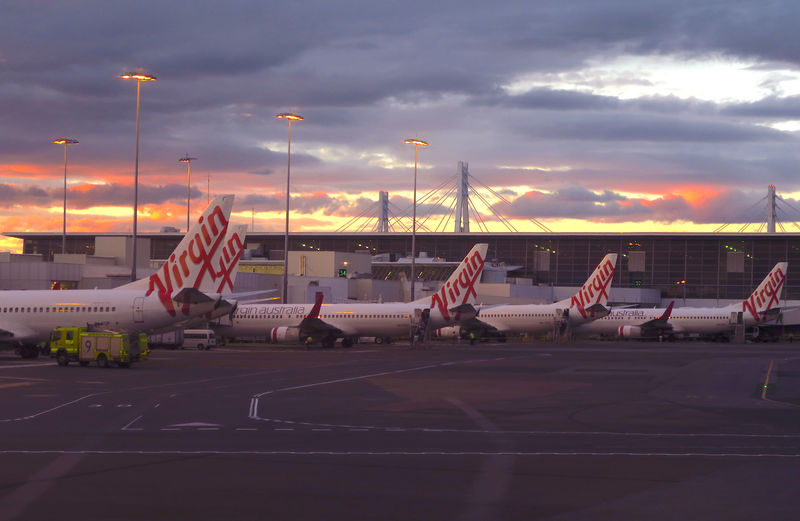By Jamie Freed
SYDNEY (Reuters) - Virgin Australia Holdings Ltd (AX:VAH) said on Wednesday it plans to cut domestic capacity by at least 2% and remove five aircraft from its fleet as it grapples with stagnant demand.
It will also axe its Melbourne-Hong Kong route, which Virgin said had underperformed amid widespread pro-democracy protests in Hong Kong and the carrier will fly from Brisbane to Tokyo's Haneda Airport instead.
The reduction in domestic capacity, which will take place before end-June and comes on the heels of restructuring moves unveiled this year, is aimed at lifting airfares as domestic revenue and demand have flatlined, Chief Executive Paul Scurrah said.
"We are seeing a flat market compared to a very robust first half last year," he told media by phone after his company's annual meeting in Brisbane. "We are seeing the same things our competitor is seeing."
Bigger rival Qantas Airways (AX:QAN) last month reported revenue per available seat kilometer in its domestic business, had fallen nearly 1% in the quarter ended Sept. 30. Virgin does not provide quarterly revenue updates.
Virgin said in August it would cut 750 jobs, merge business divisions and conduct a sweeping review of its operations after swinging to an annual underlying loss due to soft market conditions and higher fuel costs.
Scurrah said on Wednesday the airline was working to get the balance right between Virgin Australia and its budget brand, Tigerair Australia, so that the pair were no longer operating on the same routes at the same time.
Virgin will remove two Airbus (PA:AIR) A320s from the Tigerair fleet and three Fokker 100s from its business serving regional Australia, he said. It had a fleet of 133 aircraft as of end-June.
In September, Virgin agreed to buy back the 35% of its frequent flyer business that it did not already own from private-equity group Affinity Equity Partners for A$700 million ($482 million).
Scurrah said the frequent flyer deal would yield A$20 million of cost savings, which would help pay the interest on new borrowings taken out to fund the purchase.
Qantas said last month it would increase domestic capacity to maintain market share against Virgin, pointing to forward scheduling data that showed Virgin planned to raise capacity by 2% in the second half ending June 30, 2020.
A Qantas spokesman said on Wednesday his airline always monitored demand and capacity settings and would make changes as appropriate.
